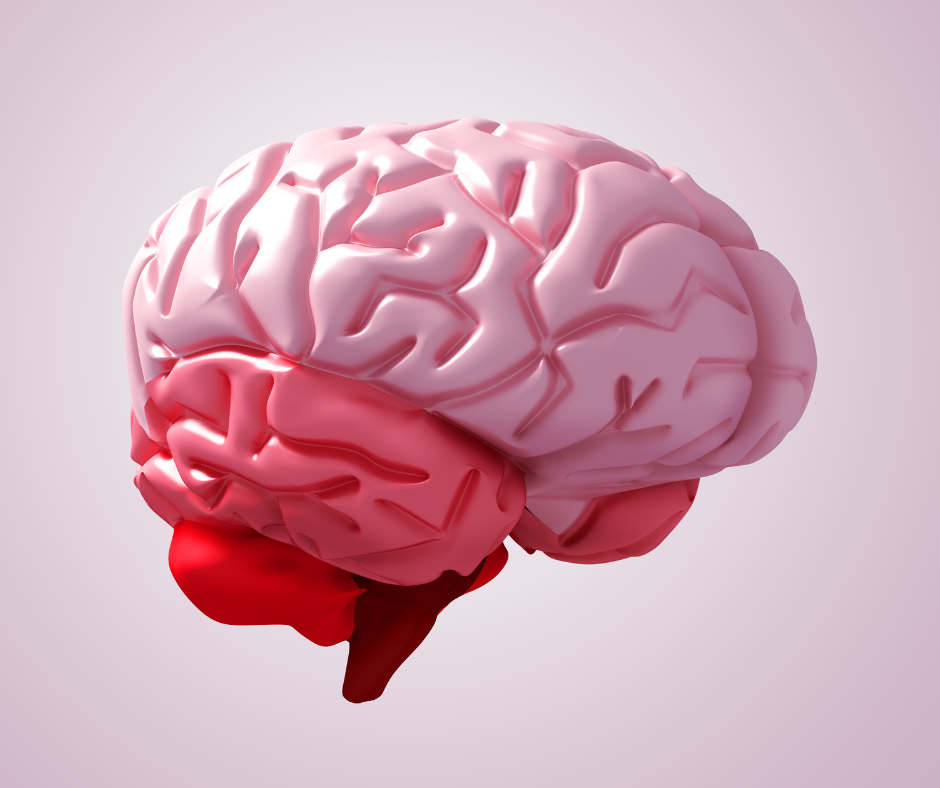Are You Emotionally Hangry? The Surprising Link Between Nutrition and Mood
We all know what it feels like to be hangry — that mix of hunger, irritability, and impatience that can turn even the calmest person into a walking storm cloud.
But what if that experience isn’t just about a skipped lunch? What if your mood, focus, and emotional regulation are being shaped every day by what’s happening in your gut, your blood sugar, and your brain’s chemistry?
The connection between nutrition and mental health has become one of the most exciting frontiers in psychology. We now know that food doesn’t just fuel the body — it directly influences how we think, feel, and cope with stress.
If you’ve been feeling anxious, foggy, or emotionally reactive lately, your nervous system might not just need mindfulness. It might need minerals.

🧠 The Gut-Brain Highway: Your Second Nervous System
Your gut isn’t just for digestion — it’s an active communication hub with your brain. This connection, known as the gut-brain axis, is a two-way communication system linking your enteric nervous system (in your digestive tract) to your central nervous system (in your brain).
About 90% of serotonin — the neurotransmitter responsible for mood regulation, sleep, and emotional stability — is actually produced in the gut, not the brain.
When your gut bacteria are healthy and balanced, they help synthesize neurotransmitters like serotonin, dopamine, and GABA. When they’re disrupted (from stress, poor diet, or antibiotics), communication between the gut and brain becomes strained — often showing up as mood swings, irritability, or anxiety.
Think of it this way:
A calm gut sends calm signals. A stressed gut sends stress signals.

🩸 Blood Sugar Swings and Emotional Chaos
Most of us underestimate how profoundly blood sugar impacts mood. When you eat refined carbs or sugary snacks, your glucose spikes — giving you a quick burst of energy — and then crashes, leaving you tired, jittery, or emotionally low.
These fluctuations activate the body’s stress response. Cortisol rises. The brain senses danger. Suddenly, you’re not just hungry — you’re reactive, anxious, or overwhelmed.
Chronic blood sugar instability can mimic anxiety symptoms:
- Racing heart
- Irritability
- Trouble focusing
- Fatigue
- Feeling “on edge”
Stabilizing your meals — adding protein, fibre, and healthy fats — helps keep your mood regulated by preventing those cortisol-triggered crashes that mimic emotional distress.
🍞 Why Skipping Meals Feels Like Anxiety
Skipping meals or eating inconsistently can put your body into mini “survival mode.” Your brain is incredibly energy-hungry — it consumes roughly 20% of your total energy even at rest.
When your blood sugar drops, your brain releases adrenaline and cortisol to keep you functioning. Those are the same stress hormones associated with panic and anxiety.
That jittery, short-fused feeling after skipping breakfast?
That’s not personality — that’s physiology.
Over time, repeated blood sugar dips train your nervous system to expect stress, making emotional regulation harder even on calm days.

🌿 The Role of Inflammation and Mood
When the gut is inflamed — due to poor diet, chronic stress, or processed foods — the immune system releases inflammatory cytokines. These chemical messengers can travel to the brain, altering neurotransmitter balance and reducing serotonin activity.
Research now links chronic low-grade inflammation to increased risk of depression and anxiety.
In short:
Your mental health isn’t just in your head. It’s in your immune system, too.

🧬 Micronutrients That Matter for Mental Health
Even mild nutrient deficiencies can impact mood and cognition. Some of the most crucial include:
- B Vitamins (B6, B9, B12): Support serotonin and dopamine production. Low levels can cause fatigue, irritability, and brain fog.
- Magnesium: Regulates the parasympathetic nervous system — your “calm” mode. Deficiency is linked to anxiety and tension.
- Zinc: Helps modulate stress responses and supports neuroplasticity.
- Omega-3 Fatty Acids: Essential for brain structure and emotional regulation. Deficiency is correlated with depressive symptoms.
- Iron: Low iron can mimic symptoms of depression and concentration issues due to reduced oxygen flow to the brain.
☕️ Caffeine, Cortisol, and the Stress Loop
Caffeine can feel like focus — but it’s actually adrenaline.
A moderate amount can sharpen attention, but in excess (especially on an empty stomach), caffeine amplifies cortisol levels, increases heart rate, and can trigger anxiety.
If you find yourself feeling jittery or irritable after your morning coffee, it might not be “just stress.” It might be an overstimulated nervous system running on caffeine instead of nutrients.
Try pairing your coffee with protein or switching one cup to green tea, which contains L-theanine, an amino acid that promotes calm focus.

🥗 The Mood Plate: Eating for Emotional Regulation
You don’t need a perfect diet to feel better — you just need a stable one.
A few foundational strategies:
- Eat balanced meals every 3–4 hours to prevent energy crashes.
- Include a protein or fat source at each meal to steady blood sugar.
- Add colourful vegetables for fibre and antioxidants to support gut health.
- Choose complex carbs (like oats, quinoa, and brown rice) for steady glucose release.
And remember: the goal isn’t restriction — it’s regulation.
Your body doesn’t need less. It needs enough.
💬 The Emotional Side of Nutrition
For many people, food isn’t just fuel — it’s comfort, celebration, control, or distraction.
When life feels chaotic, eating patterns often mirror emotional patterns:
- Restricting when you crave control.
- Overeating when you crave comfort.
- Skipping meals when you’re overwhelmed.
These are emotional responses, not moral failings. Therapy can help unpack why certain eating behaviours emerge — not to shame, but to understand and rebuild safety with food.
🧘♀️ The Vagus Nerve: Your Body’s Calm Button
The vagus nerve connects your gut, brain, and heart — it’s the main pathway for calming the body after stress. When the gut is nourished and functioning well, it supports healthy vagal tone, meaning your body can recover from stress faster.
Poor gut health, however, reduces this flexibility — keeping you stuck in fight-or-flight mode.
In therapy, we often work on bottom-up regulation: breathing, grounding, and mindfulness that calm the body first, allowing the brain to follow. Nutrition supports the same system — it gives the body the stability to feel safe enough to emotionally reset.
🧩 When to Seek Support
If you notice:
- frequent mood swings tied to eating patterns
- anxiety that worsens when hungry
- constant fatigue despite adequate rest
- emotional eating cycles you can’t break
- digestive discomfort paired with stress
…it may be time to look beyond the surface. A therapist can help explore the emotional context behind these patterns while collaborating with other healthcare professionals if needed.
💡 What Therapy Can Offer
Therapy can help you:
- understand the emotional connection to food
- reduce guilt and perfectionism around eating
- identify how stress affects your appetite and mood
- develop mindful eating habits rooted in compassion
- regulate your nervous system alongside nutritional care
The goal isn’t a “perfect diet” — it’s balance.
Emotional and physical nourishment are deeply connected.

💜 The Bottom Line
Food impacts far more than your body — it shapes how you experience the world.
When you nourish your gut, you nourish your mind.
When you feed your brain, you strengthen your capacity to cope, connect, and feel.
Being emotionally hangry isn’t a personality flaw — it’s a sign your system needs care, not criticism.
✨ Ready to Feel More Balanced — Inside and Out?
At KMA Therapy, our therapists help you understand the emotional and physiological sides of stress, anxiety, and regulation — so you can rebuild balance in every part of your life.






